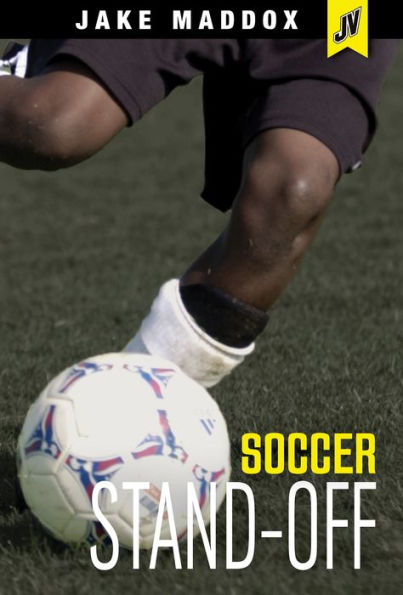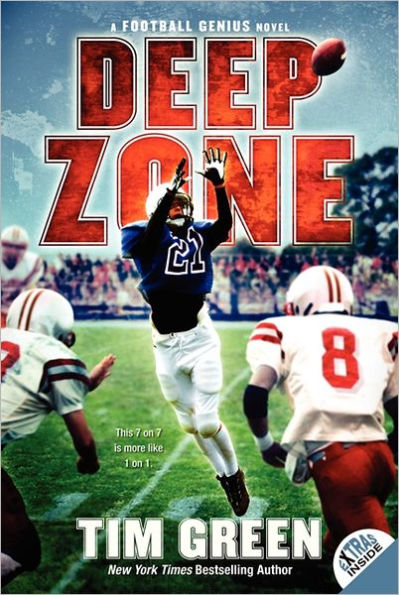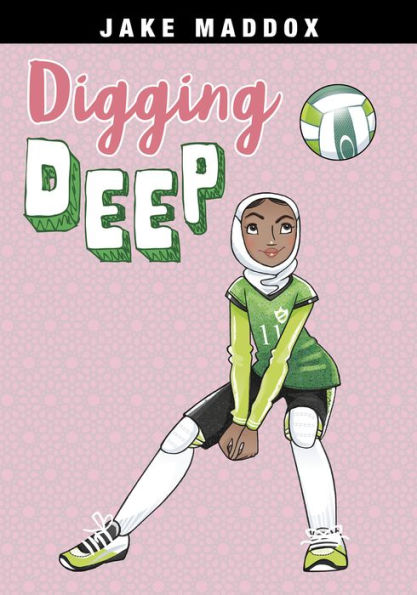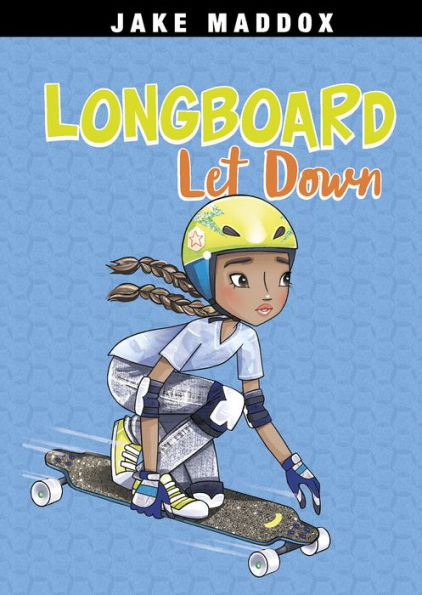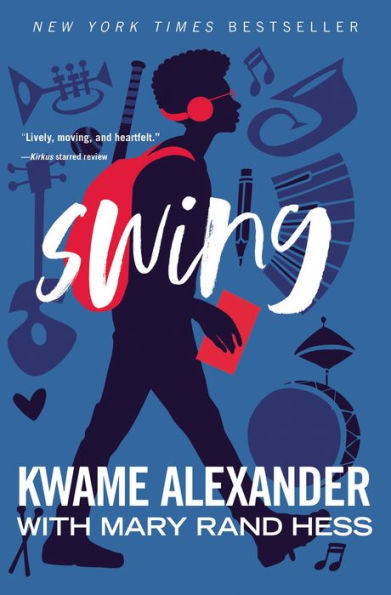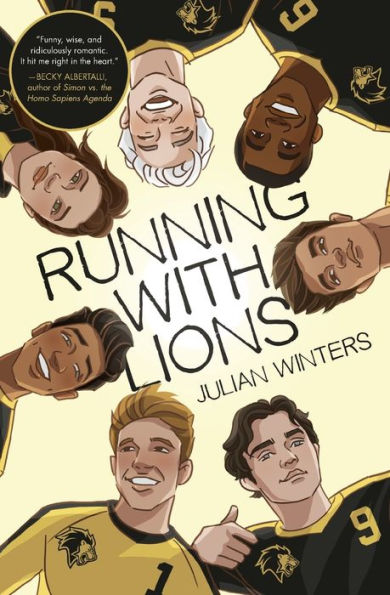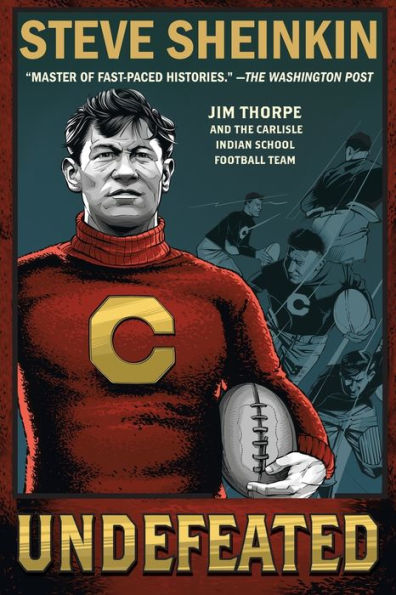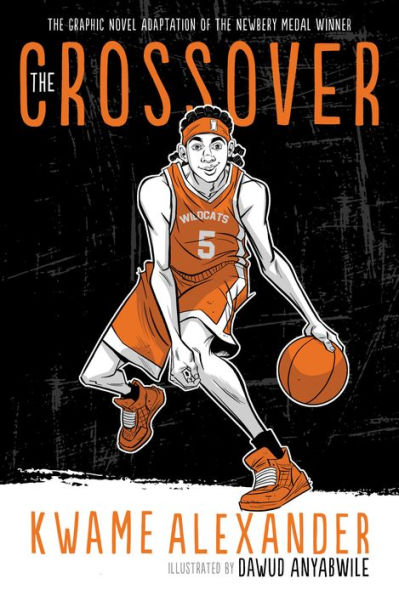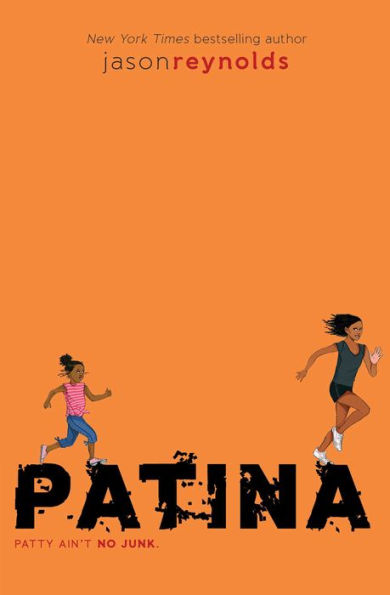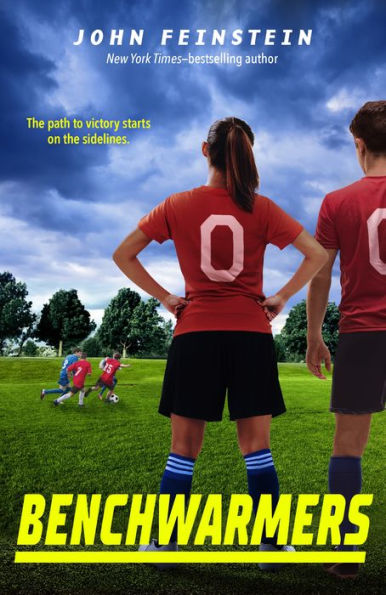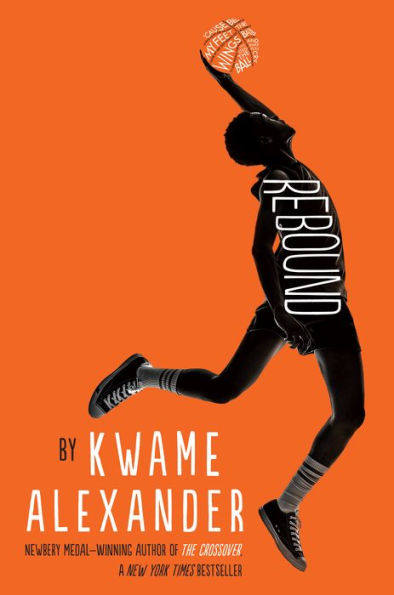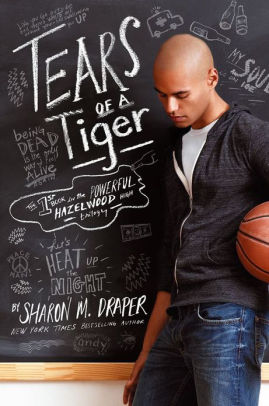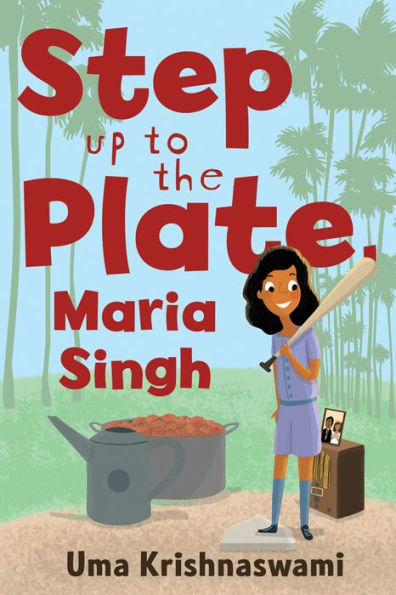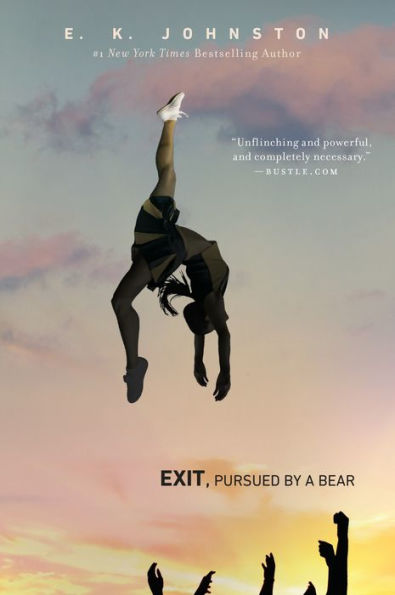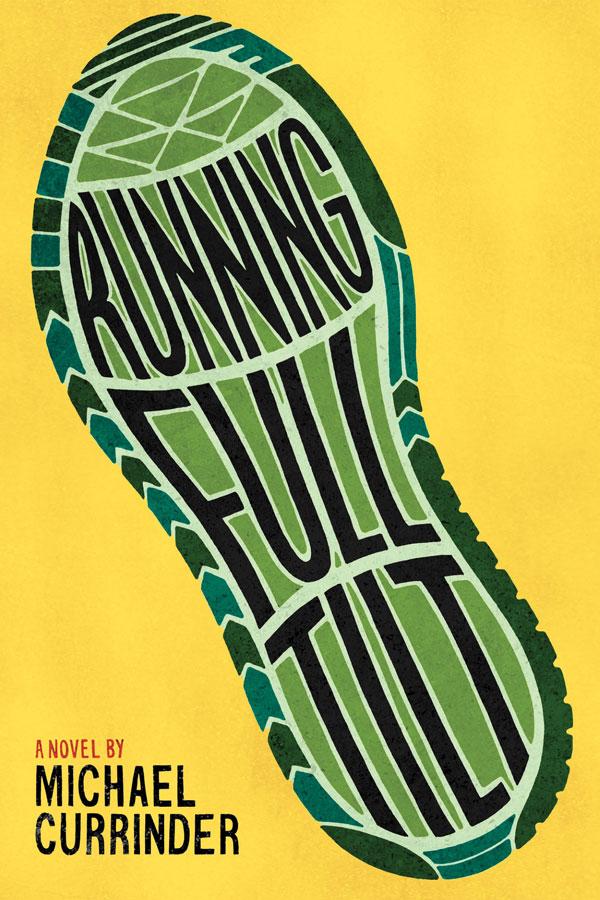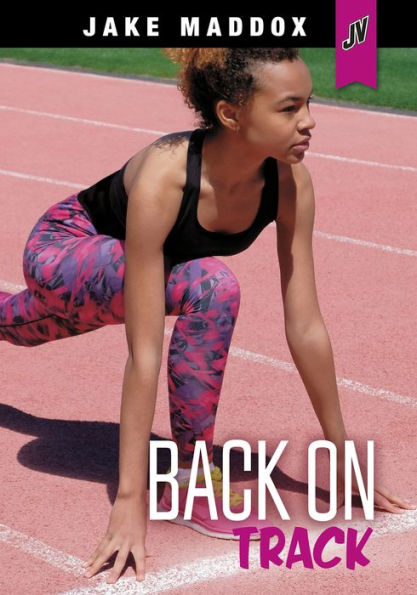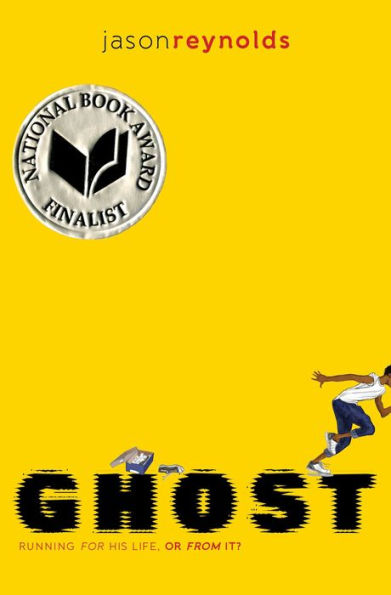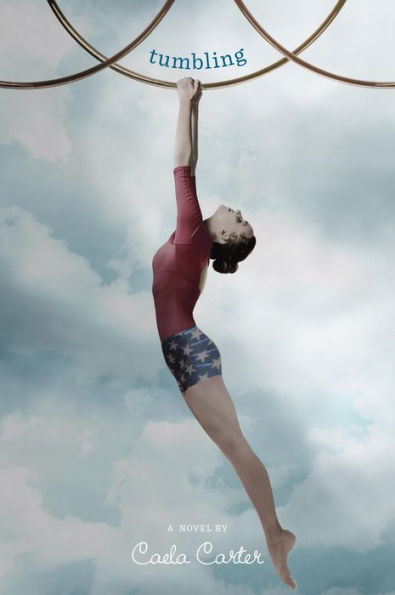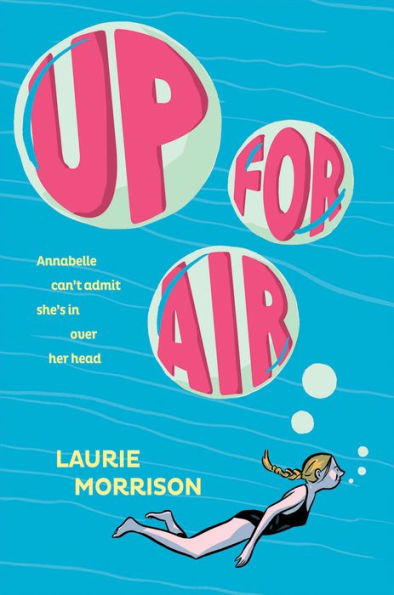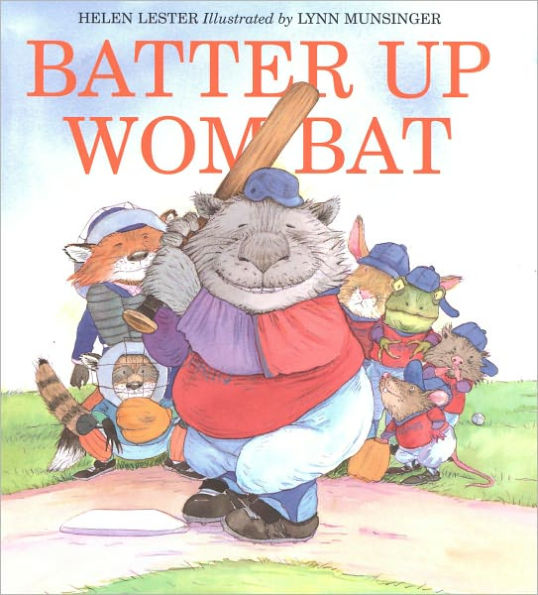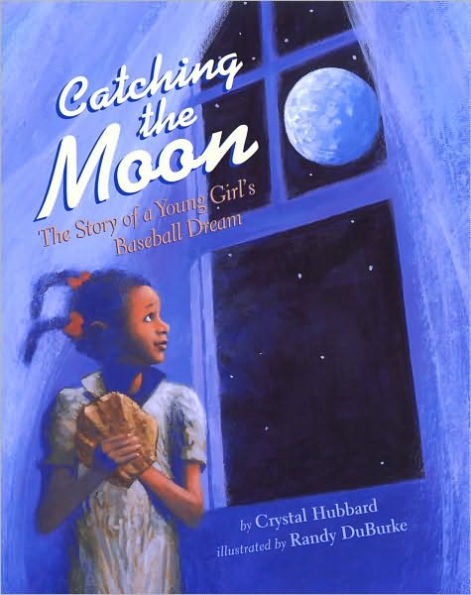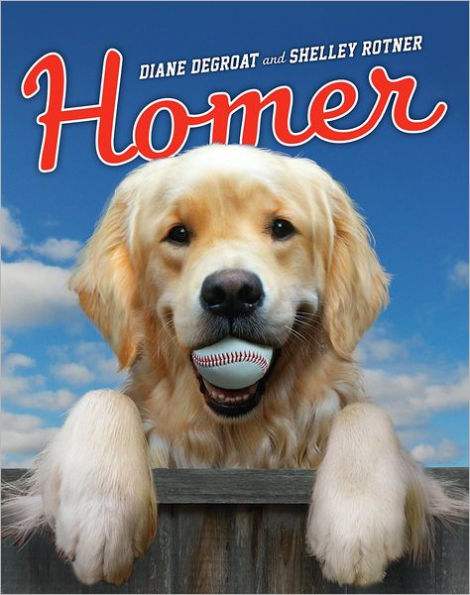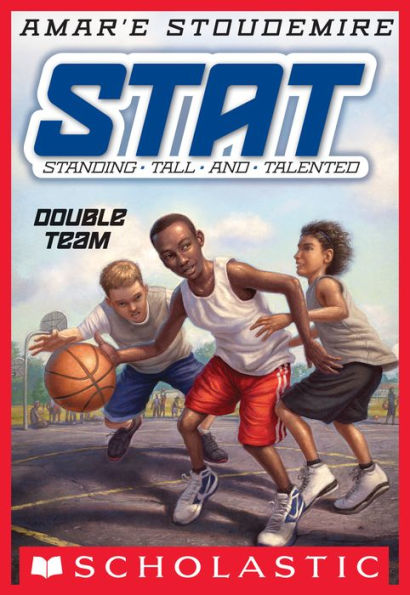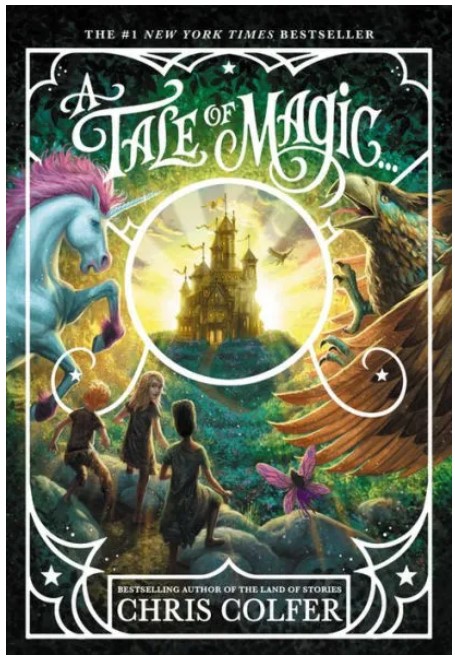Despite their love for baseball, Noah and Walt are terrible players. Walt, who now requests to be called Swing (a request that Noah ignores), is undeterred. As with everything else in his life—jazz, love, and becoming cool—Swing is always willing to take a chance and wants to convince Noah to take swings in his life too.
Noah has been pining after his childhood best friend, Sam, since third grade. When Noah uncovers a set of love letters, he uses his art skills to adapt the letters to help him articulate his feelings for Sam. When Walt anonymously sends one of Noah’s letters to Sam, Noah must decide whether to put himself out there, even if it means rejection.
While Noah grapples with his emotions, many American flags are being left around town. Some think it’s a prank, but others seem to think that something more sinister is going on. The rising tensions and prejudices of their town come to light as Noah struggles to find confidence.
Despite being the main character, Noah is a shadowy figure compared to Swing. Swing’s vibrant sense of humor and optimistic outlook never waiver, and he has endless methods for trying to get Noah to see that life can be sunnier with a little effort. Noah, who can be petulant, drags his feet at most of Swing’s suggestions and comments. Many of Noah’s problems could be fixed if he earnestly took Swing’s advice. However, as the story progresses, Noah learns to take life in stride.
Most of the novel focuses on Noah’s conflicts with his unrequited love for Sam. Noah thinks he’s superior to Sam’s current boyfriend, Cruz, who is a varsity baseball player. Much of Swing’s advice for Noah surrounds this topic, as it consumes Noah’s every waking moment. There are moments where Noah’s passion for art comes up, but often it is to impress Sam in some way. Occasionally, Noah’s pining and self-pitying nature can be overbearing. However, he eventually finds the courage to tell Sam how he feels.
Although Swing, Noah, and Cruz all enjoy baseball, the main focus of Swing is not baseball. Instead, baseball is used to highlight Swing’s willingness to go after what he wants. Unlike Swing, Noah’s reserved nature holds him back from going after what he wants, and Noah himself gives up baseball early in the book.
Swing tackles a lot of themes, including love, friendship, and prejudice. Not all the topics are fully expounded upon, and because of the twist ending some narratives are shortened. Swing is also told in free verse, and various art pieces appear as part of the story. These creative elements enhance Noah’s emotions and the reading experience. Overall, Swing shows that life is what people make of it. The most important lesson Swing offers is that people should find the courage within themselves to swing for worthy goals.
Sexual Content
- According to Noah, his crush and best friend Sam, “was busy being cool, and fine.” He thinks he’s in love with her, and he claims that she is his inspiration when he draws.
- Swing says to Noah, “Seven years is a long freakin’ time/ not to hook up with your/ self-proclaimed soulmate.”
- Swing claims that his cousin, Floyd, is his romance guru because Floyd “used to date a reality TV/ star, and he knows a thing/ or two about love. Girls are always/ fighting over him.”
- Sam indirectly tells Noah that her boyfriend, Cruz, is trying to pressure her into sexual activities which makes her uncomfortable. She says, “Cruz is kinda putting pressure on/ me…How do I tell him to slow down?”
- Swing tells his cousin Floyd that he’s “saving [his] paper for some nice frames the chicks will love.” Floyd reprimands Swing for being sexist and calling women chicks.
- Floyd says to Swing, “Your future stepdad is a lucky man/ Aunt Reina was/ always fine as full-bodied wine.” To this comment there is silence and then Floyd adds, “What? It’s not like Floyd’s trying to Oedipus your mom. . .”
- Noah wants to write Sam “maybe a love song/ or a sonnet.” Unsure of how to convey his feelings, he listens to Swing’s recommended podcast, The Woohoo Woman, which dispenses love and life advice.
- In a thrift store, Sam and her boyfriend Cruz kiss twice much to Noah’s chagrin. Noah describes, “they kiss like nobody/ and everybody’s watching.” The second time, Noah’s details about the kiss increase. He thinks, “I try not/ to pay attention to how long it lasts/ –eleven seconds—or how his hands move up and down/ her back (slowly), or/ how her eyes are closed and his are/ looking at—” Cruz then says to Noah, “Hey you, stop staring at my girl’s/ haunches.”
- The employee in the thrift shop, Divya, shows Swing and Noah a purse. After she explains what it is, Swing says, “Striking. Exquisite…/looking not at the bag, but/ at her.” He makes several more passes at Divya. Swing even “grabs her hand/ with a confidence/ [Noah’s] never seen/ in mixed company/ and kisses it.” From this scene on, Swing is infatuated with Divya and expresses his feelings to Noah frequently.
- Noah shares his first attempt at writing a song for Sam. The song is crude, and Swing points this out. Some of the lines include, “Your moist lips/ the oboe/ my tender mouth/ sings through.”
- Noah finds a stack of love letters from the 1960s. In these letters, the writer, Corinthian, sometimes talks about how he wants to kiss Annemarie, his love.
- Swing asks Noah to think about what he feels while listening to jazz. During a jazz song, Noah imagines “ending the day with a mad kiss/ under the jungle gym.”
- Noah sees Sam and Cruz kissing at school. Noah notices that “She kisses him/ loudly.”
- Noah asks who Sam thinks is sending her love letters/art pieces. Sam says, “whoever/ is doing this is/ smart and sexy.” In a separate thought, she muses, “Maybe it’s a girl.”
- Cruz asks Swing and Noah how to “close the deal with Sam.” In this case, it is implied that Cruz wants to have sex with Sam.
- Sam tells Noah why her parents got divorced. She says, “five years ago, our German/ shepherd Lucy ate some/ woman’s lingerie. When they/ recovered the skimpy outfit/ from Lucy’s gut, things got a little/ awkward when Mom/ realized the vet tech wasn’t holding/ up her lingerie.”
- Sam, Noah, and Swing look at a Dali painting with a girl in it. When asked about what he sees, Swing says, “A girl with a big rump-shaker staring out/ the window.”
- Sam gives Noah a parting kiss, “centimeters from/ [his] lips.”
- Sam stays over at Noah’s house and they lay in bed. They talk all night and into the morning.
- Sam says to Noah, “let’s go back to your/ place, and I can show/ you how a sophisticated lady acts.” This is seemingly sexual, but it is not explained further.
- Sam kisses Noah on the cheek.
- Noah describes one of his kisses with Sam. He says, “Our noses touch./ Our breath quickens./ We’ve kissed/ at least a dozen times,/ but this feels/ like the first,/ the only.”
- Swing is miserable because Divya kissed him “on [his] neck.” For Swing, this means that she doesn’t want “to engage in witty/ conversation/ and occasional verbal sparring,” but rather she wants to do potentially more sexually explicit activities.
- Noah describes his classmates and friends at prom. He notes, “Everyone’s either/ smiling or smirking,/ twirling or twerking,/ posing or posturing,/ kissing or wanting.”
- Swing tells Noah that Divya kissed him. Swing describes, “Divya kissed me, really kissed me,/ and it was an out-of-body/ experience. It was heaven, Noah,/ and she was an angel.”
Violence
- While in the third grade, a bully named Zach punched Noah. Sam, in retaliation, “pushed Zach Labrowski/ out of the seat, then/ squeezed in next to me/ and offered a tissue.”
- Noah thinks that Swing snuck the love letter/art piece that Noah made into Sam’s bag. Noah is furious and thinks, “Never/ been/ a/ violent/ person/ but/ right/ now/ I/ feel/ like/ going/ to/ batting/ practice/ on/ Walt’s/ head.”
- Noah compares his confrontation with Cruz and Sam to an old cowboy movie. He describes, “and the drunk fool will answer,/ I reckon this is none of your business,/ stranger,/ and clumsily pull out his six-shooter,/ at which point/ he will get shot dead/ between the ears/ by the handsome stranger,/ who will then/ ride off/ into the sunset/ with the lady/ on his arm.”
- At a party, one of the seniors, who is very drunk, jumps from the upstairs railing to the couch. He’s in a lot of pain, and the students decide to call an ambulance. Much later, it is explained that he “sprained/ his pinky toe/ trying to be Superman.”
- Swing’s brother, Moses, fought in Afghanistan and seems to suffer from PTSD. Sometimes he makes references to what he saw in combat, though it is never graphic or explained. For example, he yells “BAM!” quite a bit, in reference to the explosions that he heard.
- Noah has Sam listen to some jazz, and she doesn’t enjoy it. Noah says, “It’s not depressing, it’s yearning.” To this, Sam says, “Yearning for what, a bullet to the/ head?”
- It is insinuated throughout the book that the police are harassing minorities about the flag vandalism occurring around town. One night, Swing and Noah realize that Swing’s brother Moses is behind the incidents. When Swing and Noah find Moses, Swing takes the baseball bat that Moses is holding because he’s worried that Moses might be unstable due to Moses’ personal history. The police arrive, and they shoot and kill Swing on sight. It is later stated that the officers perceived Swing as a threat because he was holding a baseball bat. It becomes clear that the officer’s prejudices influenced their decision, as Swing was black. Noah describes, “One/ shoots/ two/ shoot/ three/ shots/ slice/ through/ rain/ drops/ Walt/ drops/ blood/ drops/ I run/ I run/ to Walt.” Noah runs to Swing’s aid, but the cops tackle him to the ground. Noah later recalls, “The bat falling/ from Walt’s hands,/ suspended/ for too long./ The sound/ of gunshot/ piercing air/ and flesh.”
Drugs and Alcohol
- Swing describes to Noah how they’re going to be cool one day. Swing says, “when people google/ cool a picture of me and you/ spitting seeds and tobacco/ with our hats to the back will pop/ up.” It is expressed later that they themselves do not chew tobacco.
- Noah’s parents go to Barcelona for the International Hotel Association conference. According to Noah, this trip is where “hotel managers/ talk about hotels/ from sunup/ to sundown,/ then get drunk/ and post videos/ of horrible, late-night/ karaoke sessions.”
- Before Noah’s parents go to Barcelona, they sit Noah down to talk about the house rules. Noah dryly jokes to his parents, “I think I’m clear on all the rules . . . no beer on an empty/ stomach, right?”
- One of the love letters that Noah finds states that the writer, Corinthian, and the intended recipient, Annemarie, drank wine.
- Noah and Swing listen to a podcast called Straight, No Chaser. The podcast’s content is never discussed.
- Noah looks for the Corinthian, who wrote the love letters. All he can find is a Corinthian who wants to “turn up and sig a little/ drink.”
- Swing suggests that he and Noah should “get pizza and beer.” Noah replies, “We don’t drink beer.”
- Sam spreads the word that Noah’s having a party. Sam tells Noah, “I can ask/Cruz to get his older/ brother to bring some beer.” The beer is expressly for the partygoers rather than Swing, Sam, or Noah, who stated several times that they do not like beer.
- At Noah’s party, there is “some sort of punch/ that some guy,/ who [Noah’s] never seen before,/ starts immediately spiking/ with a bottle/ from his backpack.” Many of the teenagers at the party drink out of it and from the beers they’ve brought.
- Sam speculates that Moses may have been “on drugs” when he showed up at Noah’s party.
- Sam admits that she’s tried weed, “just once.”
Language
- Words like weird, idiot, dang, friggin’, shut up, suck, pissed, and dayum appear infrequently.
- Sam and Noah have creative insults for each other, though these jabs are light-hearted. For example, they call each other, “Sucknerd,” “Toadlip,” “Horsehead,” and “Big butt.”
- On The Woohoo Woman Podcast, Marj says, “We’re back for the last half/ hour of Woohoo Woman,/ hopefully with a little less profanity/ in this segment.” Jackie later almost says various swear words, but she catches herself or is cut off by Marj each time. For instance, Jackie says “DAYU-“ instead of damn.
- Noah’s Granny calls some of her card-playing buddies “SHYSTY FELLAS.”
Supernatural
- Swing is very superstitious. Noah says that Swing “can’t walk/ up or down/ the same side of the street/ on the same day,/ or in and out/ of the same door/ when he’s coming/ or going somewhere.”
- Noah describes art to Swing. Noah says, “Art is…finding yourself/ under the spell of/ Gustav Klimt’s/ The Kiss.”
Spiritual Content
- Many years ago, Noah and Sam went to the same “Jesus camp.”
- In the third letter, Corinthian makes many religious references. Corinthian tells Annemarie, “i went to church with nothing but a penny for an offering. inside i prayed a thousand prayers sacredly and secretly holding the memory of your hand in mine. . . all the mysterious and magnificent things that make music will be ours under notes of heaven above and earth below. our love provides god’s angels with trumpet and song. . . [you] gave me everything, like the goddess of muses. heaven may be a place where artists go when they die, eternally playing songs, painting scenes, writing plays, or else napping, but i regret to inform the big man that i’m not leaving for eternity until u and i can be seen as an ‘us’ on this same earth.”
- Swing paraphrases the Bible’s book of Matthew. Swing tells Noah, “If your brother pisses you off, tell him about it. If he listens to you, he is your brother for life.” Noah replies, “I doubt the Bible says pissed off.”
- Noah and Swing listen to a jazz album. Noah describes the experience by saying, “We listen/ like we’re in church, on/bended knee, and our god/ is Dexter Gordon.”
- Noah describes art to Swing. Noah says, “Art is…Monet’s/ Impression. Sunrise/ carrying you away on a harbor of dreams/ that only God/ knows about.”
- After an officer interrogates Noah about Swing, Noah thinks about the officer, “You are not/ God. Here. You are/ not God. You/ are no God. You/ are no good.”
by Alli Kestler
